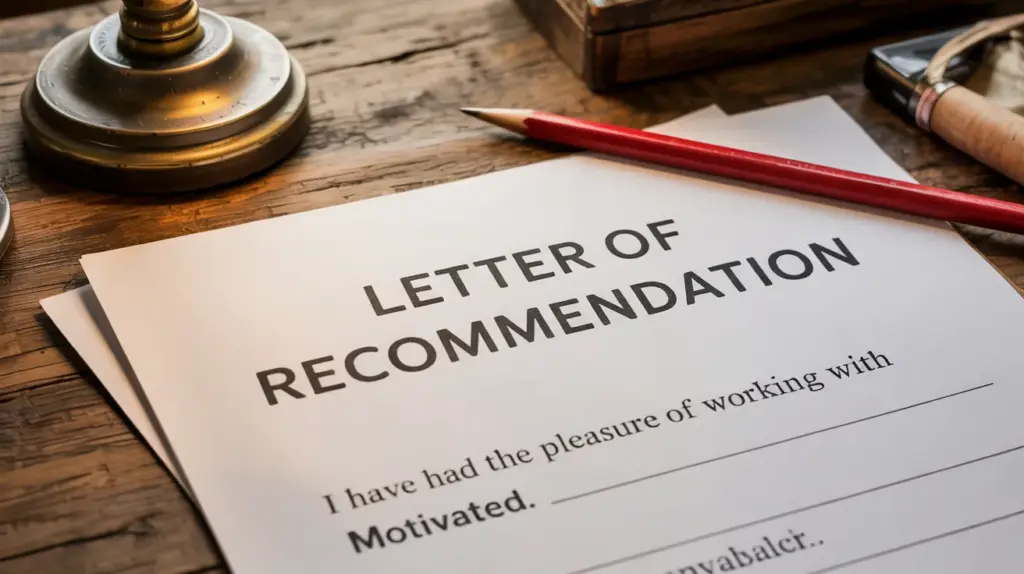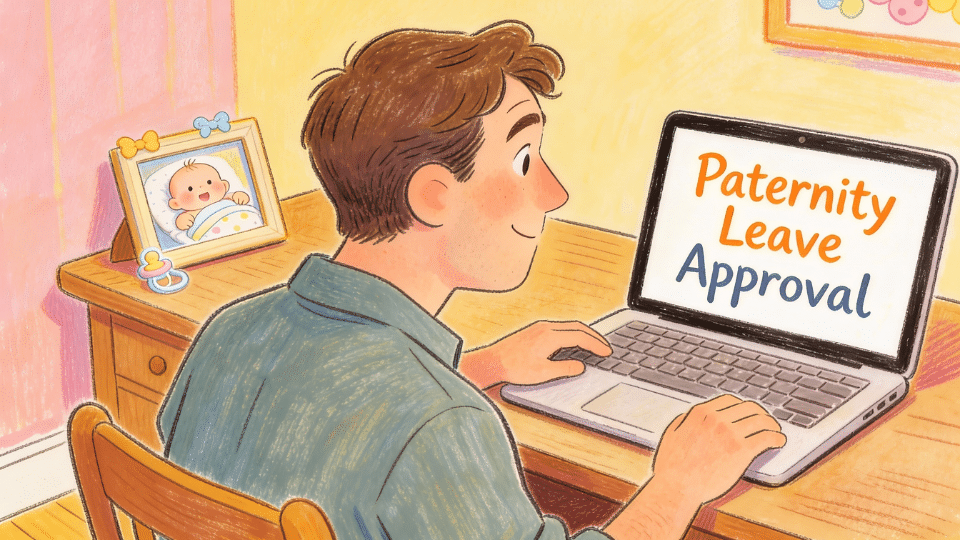You stare at that job application, asking yourself: “Are cover letters necessary?”
This question confuses millions of job seekers.
The digital age has changed hiring practices. Some companies use automated systems that skip cover letters. Others still expect them as proof that you care about the role.
Cover letters are necessary for job applications, but there’s no simple yes or no answer. Their importance depends on the job, industry, and company culture.
This blog will show you when cover letters matter, when they don’t, and what alternatives may work better.
By the end, you will know when to invest your time in writing one.
Are Cover Letters Necessary?
According to recent surveys, hiring managers still find cover letters important.
Some hiring managers expect cover letters, while others completely disregard them. Many companies still request them as part of their process.
Your cover letter might sit unread in many cases, but when a hiring manager does review it, you want to be ready.
The companies that care about cover letters often care deeply about them. The necessity depends on three key factors:
The Three Key Factors: Cover Letter Necessity
1. Industry Expectations Vary Widely
Creative fields, such as marketing and communications, often require cover letters.
In contrast, many tech companies rely more on portfolios and technical skills.
2. Company Size Affects Reading Habits
Small companies with fewer applications may have time to review every detail.
Large corporations that process hundreds often rely more on resume screening.
3. Role Level Changes Expectations
Executive positions almost always require cover letters.
Entry-level jobs at high-volume employers may not review them at all.
Rule of thumb: when in doubt, include one. Many job seekers skip them entirely, so taking the time to write one can help you stand out.
When to Write vs. Skip Cover Letters?
Deciding whether to include a cover letter can be a tricky decision. In some situations, it adds real value by strengthening your application and showing initiative.
In others, it may be unnecessary or overlooked, making it important to know when your time is best spent.
1. Personalize Your Application Story
A cover letter gives you space to express motivation and interest beyond what’s on your resume.
You can highlight why you want this specific role at this specific company.
Cover letters allow you to engage with hiring managers and convince them to review your resume more carefully.
2. Provide Context for Your Background
Cover letters provide context for accomplishments that may otherwise seem unclear.
Career changes become easier to explain, and employment gaps can be presented in a more positive light.
They also let you emphasize the qualifications most relevant to the job at hand.
3. Show Professional Communication Skills
Writing a cover letter shows that you’re serious about the opportunity.
In competitive fields, this effort helps you stand out from the crowd.
For roles that involve communication, it also serves as a writing sample that demonstrates your ability to write clearly and professionally.
4. Address Specific Job Requirements
You can directly address the requirements mentioned in the job posting.
If they are looking for someone with leadership experience, your cover letter can explain how you led a team of 15 people to exceed sales targets by 20%.
5. Express Cultural Fit
Cover letters allow you to demonstrate how your values align with the company’s mission.
This is especially important for roles where cultural fit matters as much as technical skills.
6. Handle Complex Career Transitions
When switching industries or returning to work after a break, a cover letter helps explain your motivation and highlight transferable skills.
It provides context that resumes alone cannot, showing employers how your background aligns with the role.
Are Cover Letters Necessary for Internships?

Yes, cover letters are particularly important for internships. Since students often have limited work experience, internship cover letters help you:
Show genuine interest in learning and contributing to the organization. Employers want interns who are excited about the opportunity, not just collecting credits.
Highlight relevant coursework that connects to the internship role. Your cover letter can explain how your marketing class project relates to their social media internship.
Demonstrate writing ability, which is crucial since many internships involve communication tasks. Your cover letter becomes your first writing sample.
Explain your career goals and how this internship fits into your professional development plans.
When Cover Letters May Not Be Needed?
While cover letters can add value in many situations, there are times when they won’t make much difference.
In these cases, your energy is better spent strengthening other parts of your application.
| Situation | Why Skip | What to Focus On Instead |
|---|---|---|
| Online applications with no upload option | ATS systems don’t accept them | Strong resume with keyword optimization |
| High-volume retail/food service jobs | Recruiters process hundreds quickly | Quick online application completion |
| Technical roles with portfolio requirements | Skills and work samples matter more | Portfolio presentation and technical tests |
| Internal job applications | Your work history speaks for itself | Internal recommendations and performance reviews |
| Jobs posted on Indeed | The speed of application matters more | Fast, accurate resume submission |
Knowing when to skip a cover letter saves time and allows you to put more effort into the areas of your application that employers truly prioritize.
Alternatives to Traditional Cover Letters
Not every job application requires a full-page cover letter, yet you may still want to show initiative and stand out.
In such cases, shorter and more flexible approaches can be equally effective.
These alternatives save time while still allowing you to highlight your interests, qualifications, and professionalism.
1. Concise Introductory Email
When applying by email, the message itself can serve as a substitute for a formal cover letter.
A concise, well-structured email allows you to express enthusiasm, highlight a key qualification, and maintain a personal tone.
This approach works especially well for smaller companies or when sending materials directly to a hiring manager.
Example:
“Hi Sarah,
I’m writing to apply for the Marketing Coordinator position posted on your company website. My three years managing social media campaigns at ABC Company, where I increased engagement by 150%, align perfectly with your needs.
I’ve attached my resume and would love to discuss how my digital marketing experience can contribute to your team’s goals.Best regards,
[Your name]”
2. Personalized LinkedIn Message
Sometimes, connecting directly with a recruiter or hiring manager on LinkedIn can make a strong impression.
A brief, personalized message shows that you took the extra step to connect.
By referencing the job posting and briefly sharing a relevant achievement, you show initiative without the formality of a full letter.
Example:
“Hi Mike,
I noticed you’re hiring for a Data Analyst role at XYZ Corp. My background in SQL and Python, plus my recent project analyzing customer behavior data that led to a 25% increase in retention, seems like a great fit.
I’ve applied through your website and would appreciate the chance to discuss how I can contribute to your analytics team.
Thanks for your time!”
3. Strong Resume Summary Tailored to the Role
If you want your application to stand out but don’t have the chance to submit a cover letter, a well-written resume summary can serve as a powerful alternative.
Placed at the top of your resume, this 2–3 sentence section should directly match your strengths to the job requirements.
It ensures the most important details about your skills and experience are noticed right away.
Example for Marketing Manager Role:
“Results-driven marketing professional with 5+ years developing campaigns that increased brand awareness by 40%. Expert in digital marketing, content creation, and team leadership. Seeking to leverage proven track record in growth marketing to drive customer acquisition at innovative tech companies.”
Concl usion
Cover letters aren’t always required, but they remain valuable in the right situations.
Write one when you’re changing careers, explaining employment gaps, or applying for competitive positions.
Skip them for high-volume applications or when the system doesn’t accept uploads.
The key is to be strategic with your time.
Focus your cover letter efforts where they matter most, and use alternatives when they don’t.
Ready to make your next application stand out?
Keep a flexible cover letter template on hand so you can quickly adapt it for opportunities that deserve the effort.
Frequently Asked Questions
How Long Should a Cover Letter Be?
A cover letter should be one page, approximately 250–400 words in 3–4 concise paragraphs, tailored for hiring managers.
Should I Mention Salary Requirements in My Cover Letter?
Mention salary only if the job posting requests it. Otherwise, keep the focus on your qualifications and discuss pay during the interview stage.
Can I Use the Same Cover Letter for Multiple Jobs?
Don’t reuse identical letters. Create a flexible template, but always customize the company name, job title, and requirements for each application.










